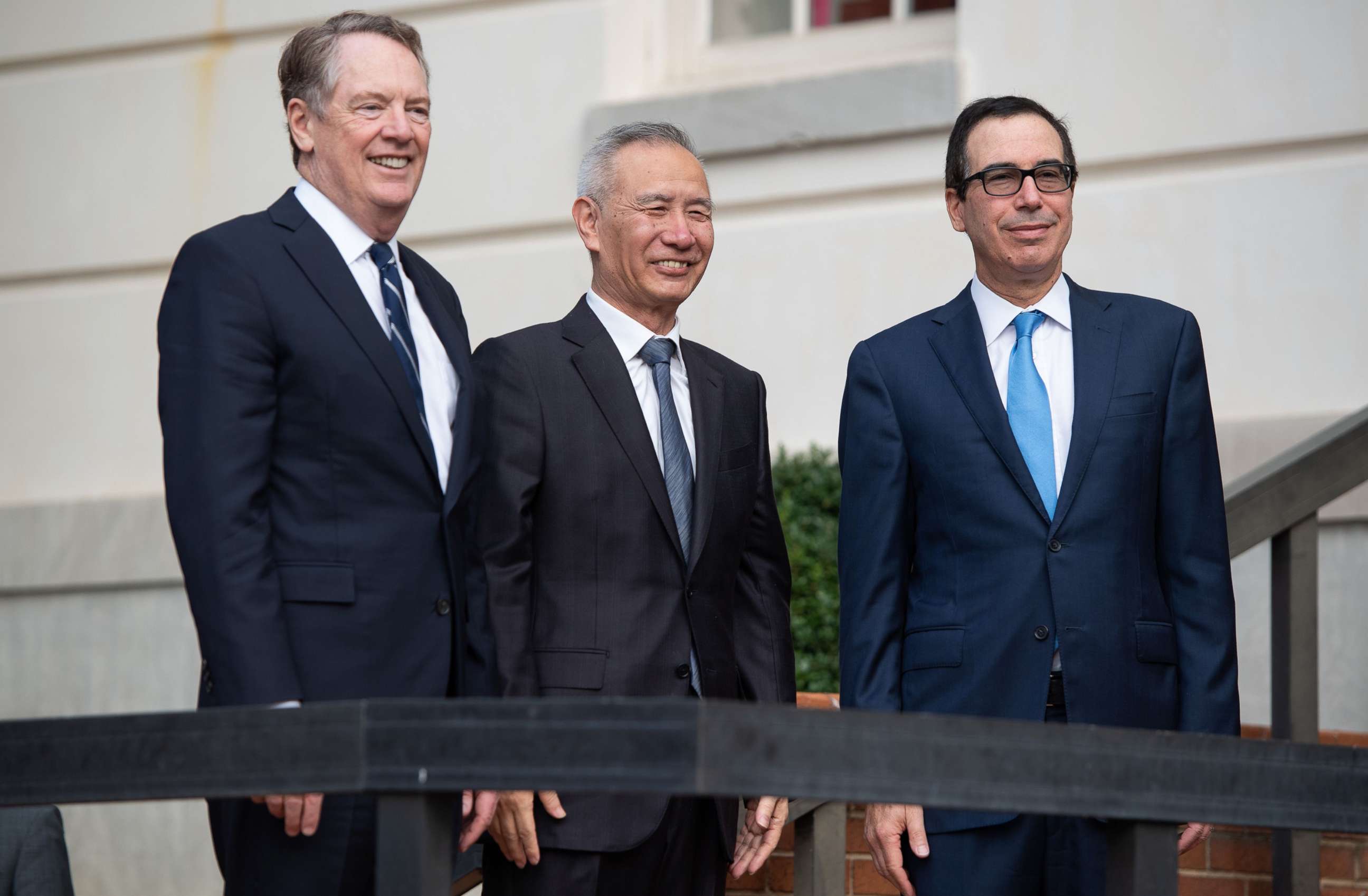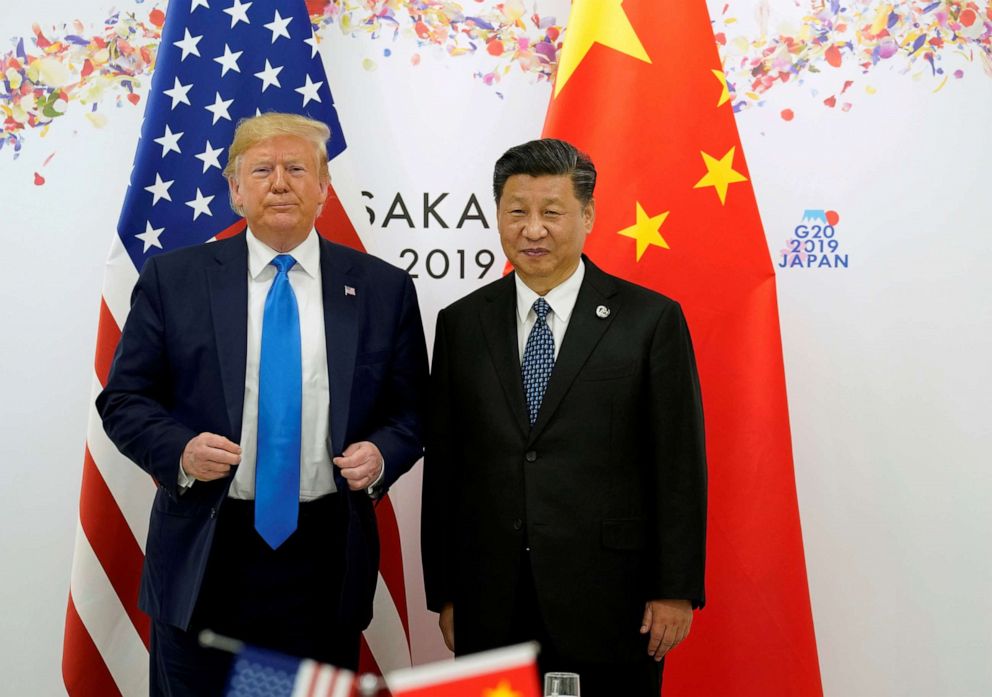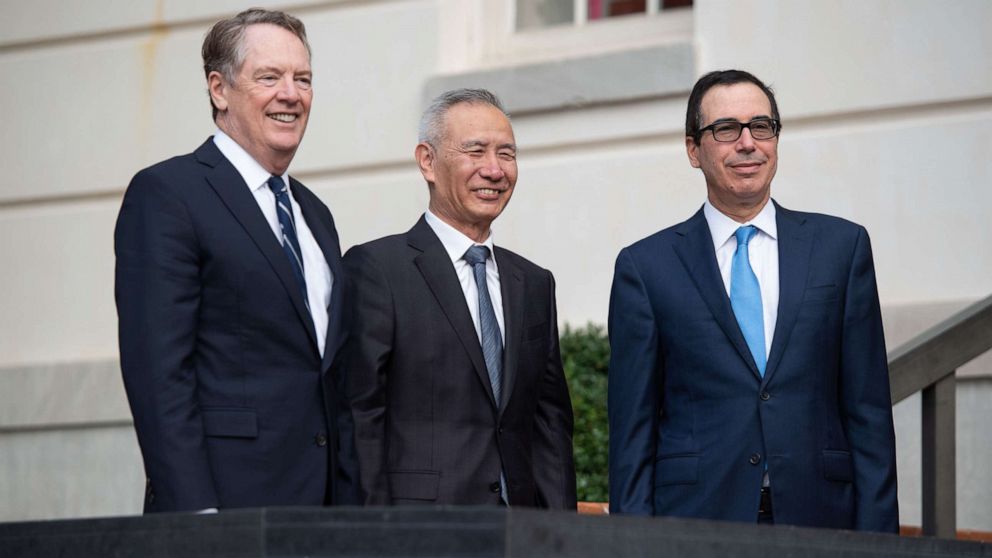US-China trade talks resume ahead of threatened tariff rate increase
As U.S. and Chinese negotiators sat down in Washington to resume high-level talks on Thursday, President Donald Trump played coy about his desire to cut a deal with China in a tweet as he also announced that he is set to have a face-to-face meeting with China's top negotiator on Friday.
While the president projected an air of nonchalance in his morning tweet as top negotiators for both sides sat down for the first time since July, Trump also told reporters on Wednesday that he thought there was a "really good chance" of making a deal.

Even so, the president continues to contend that China is more eager to cut a deal than he.
"In my opinion, China wants to make a deal more than I do, OK?" Trump told reporters Wednesday. "The question is: Do I want to make a deal? And the answer would be, if we make the right deal, I'd love to do it."
"If we can make a deal, we're going to make a deal. There's a really good chance. There's a really good chance," he added, explaining that he won't be content with a "50/50 deal," because he believes the scales are unfairly tipped in China's favor and, "you got to have a little balance."
Even as the president downplays his eagerness to reach a deal and insists that the trade dispute is harming China far more than the U.S., the resumption of talks comes as the president faces the greatest political crisis of his presidency with the House's ongoing impeachment inquiry.

The impeachment inquiry stemmed from a whistleblower's account accusing the president of pressuring the Ukrainian president to investigate political rival Joe Biden and his son Hunter's role with a Ukrainian oil company. A week later, the president also declared that "China should start an investigation into the Bidens."
Treasury Secretary Steven Mnuchin and U.S. Trade Representative Robert Lighthizer are leading the U.S. delegation in negotiations with China's Vice Premier Liu He and his team.
A senior administration official close to the negotiations declined to set expectations for the broader talks, describing the situation as "very fluid."
While the two sides are working toward the ultimate goal of reaching a grand agreement to end the more than year-long trade dispute, the most pressing matter before the two teams is the United States' scheduled Oct. 15 escalation to raise the rate of tariffs on $250 billion of Chinese goods. The U.S. has also dangled the threat of another round of tariffs on Dec. 15.
Further complicating matters are the U.S.'s latest actions this week to blacklist 28 Chinese companies and suspend visas for some Chinese officials.




